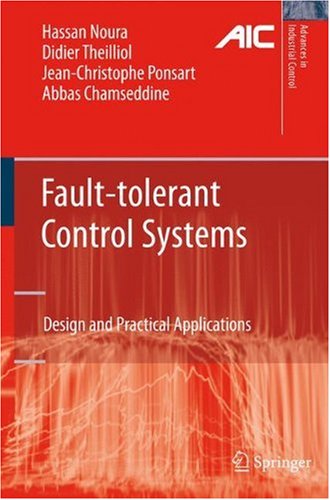

Most ebook files are in PDF format, so you can easily read them using various software such as Foxit Reader or directly on the Google Chrome browser.
Some ebook files are released by publishers in other formats such as .awz, .mobi, .epub, .fb2, etc. You may need to install specific software to read these formats on mobile/PC, such as Calibre.
Please read the tutorial at this link: https://ebookbell.com/faq
We offer FREE conversion to the popular formats you request; however, this may take some time. Therefore, right after payment, please email us, and we will try to provide the service as quickly as possible.
For some exceptional file formats or broken links (if any), please refrain from opening any disputes. Instead, email us first, and we will try to assist within a maximum of 6 hours.
EbookBell Team

4.8
104 reviewsFault-tolerant Control Systems reports the development of fault diagnosis and fault-tolerant control (FTC) methods with their application to real plants. After an introduction to fault diagnosis and FTC, a chapter on actuators and sensors in systems with varying degrees of nonlinearity leads to three chapters in which the design of FTC systems is given thorough coverage for real applications:
• a winding machine typifying a subsystem in various sheet and film processes;
• a hydraulic three-tank system representative of those used widely in chemical plants; and
• an active suspension system demonstrating application in whole large-scale systems by splitting into subsystems.
Actuator and sensor faults are accommodated within the control-law design and the integration of fault diagnosis models in the FTC systems described. Commentary is given on the recent results presented. Critical failures – the loss of system observability from total loss of a sensor and of controllability from complete loss of an actuator – are considered. Linearized systems around an operating point and nonlinear systems are discussed and illustrated. A complete simulation platform of the three-tank system, in closed-loop, with or without actuator and sensor faults, is provided for the use of the reader via download from www.springer.com/978-1-84882-652-6.
With its emphasis on real application, Fault-tolerant Control Systems makes an important contribution to the literature on FTC and will be of significant assistance to practicing control engineers with problems of this nature to solve. The book will also be of use to academic researchers and graduate students interested in FTC, bringing to their attention the need to adapt their methods for implementation and suggesting ways in which this can be done.